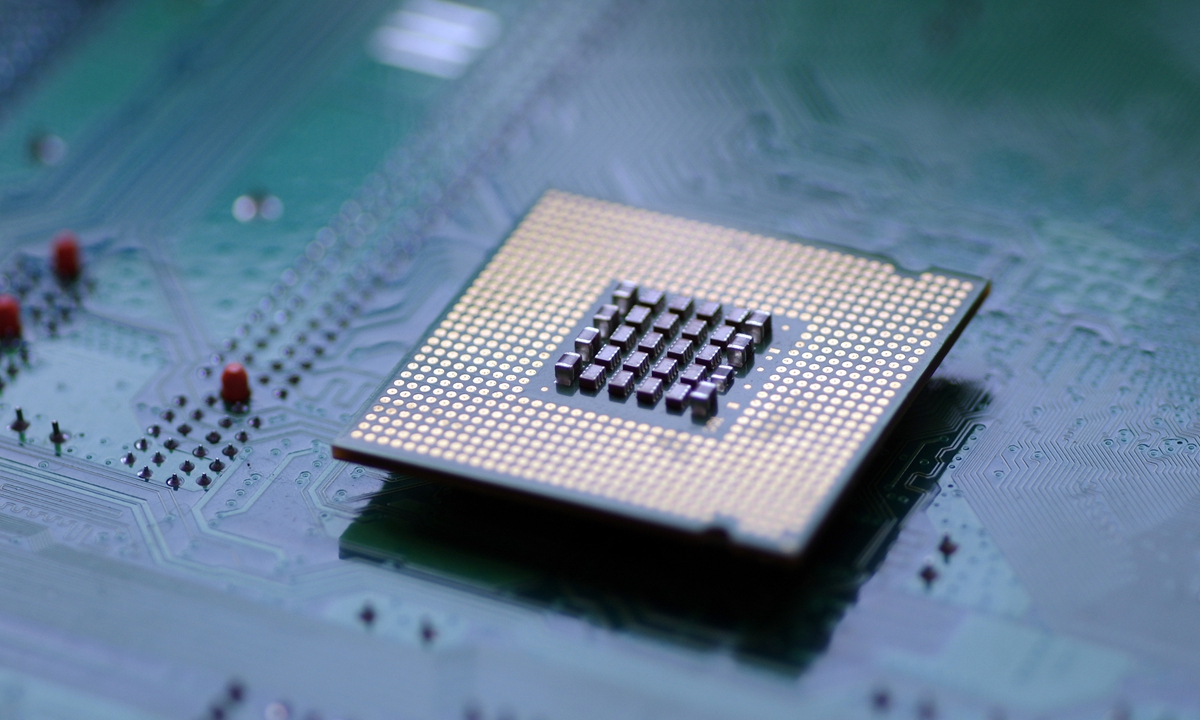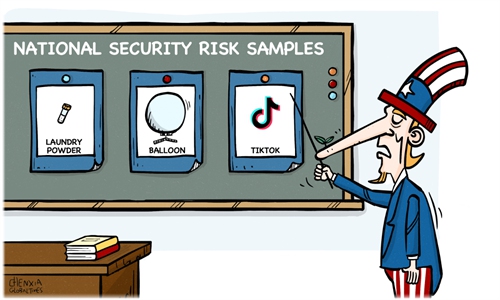
File photo
Intel on Wednesday terminated its $5.4 billion acquisition of Tower Semiconductor, a development Western media outlets pointed out was mainly due to failure to secure regulatory approval in China. The incident has triggered another wave of Western speculation and concerns over China's anti-monopoly review amid US-China technology tensions.
For instance, a Reuters opinion piece said on Wednesday that "roadblocks in China might only worsen."
While Western media outlets unanimously claimed that China "thwarted" or "torpedoed" the purchase, they cannot deny the fact that China has the right to decide whether or not to give approval to the deal because the Intel acquisition itself met the conditions of China's antitrust review for mergers. And this is a common rule for commercial mergers. Under the anti-monopoly laws in most countries, approval from local antitrust authorities is essential for the sale of a company that has a significant enough presence in the country.
The real thing that has made China's review look unusual is the background of the persistent push by the Biden administration to limit China's access to advanced semiconductor products and other key technologies. It is against this backdrop that overseas mergers and acquisitions by US chipmakers are likely to raise more concerns in China over US semiconductor monopoly, which is why relevant antitrust authorities may have to be cautious about making decisions and take more time to study possible risks and consequences for domestic industrial players.
In fact, compared with China's justified and reasonable antitrust scrutiny, it is more disturbing and bothering to see the US overstretching the concept of national security and abuse export control measures, which hinders the normal international trade in chips and other products. Moreover, Washington has been roping in allies and European countries in curbing China's access to chips and related products.
As high-end technology has become a political tool for the developed world to suppress the rise of the developing world, there is every reason to be vigilant against risks of further concentration of technology resources by US companies. While there have been acquisitions in the semiconductor industry by companies from other developed countries, there is no denying that US companies have gained the most consolidation through global mergers. By comparison, Chinese companies have been increasingly marginalized in the global chip mergers and acquisitions because of regulatory hurdles.
Last month, UK competition regulator provisionally cleared US chipmaker Broadcom's $69 billion purchase of VMware, while last year the British government ordered Chinese-owned technology company Nexperia to sell at least 86 percent of Britain's biggest microchip factory, Newport Wafer Fab, following a national security assessment.
Such industrial concentration trend actually highlights that the US monopoly in the semiconductor industry has been further consolidated. The consolidation of the semiconductor industry was supposed to be open to global participants, not exclusive to the US, but the current trend seems to suggest that only companies from the US and its allies have the qualification for acquisitions. Behind the distorted market atmosphere is the unfair approach the US has taken to promote its hegemony.
Under such circumstances, even if Chinese companies have been treated unfairly, China will still strictly abide by laws and regulations when it comes to reviewing mergers and acquisitions in relevant industries, opposing monopoly to fulfill China's responsibilities as an important member of the international trade system.



